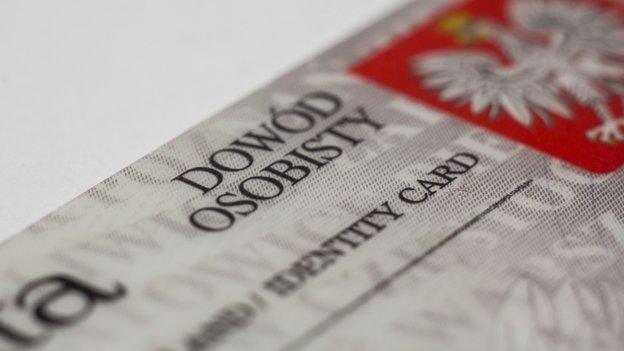Immigration: Charting Scotland’s new arrivals
- Published
The 2011 census gave us a clearer picture of where Scotland's immigrants come from, how they've changed in a decade, how much younger they are than the rest of Scotland and their religious beliefs.
1. Ethnic group by whether they were born inside or outside of the UK
Nearly all the people who defined themselves as 'Scots and white' in the last census were born in Scotland, and they were 93% of the total population.
Most Scots of Pakistani origin - 57% - were born in the UK, while 90% of Polish-Scots were born outside the UK. Large majorities of African, Chinese, Arab and Indian people in Scotland were born outside the UK.
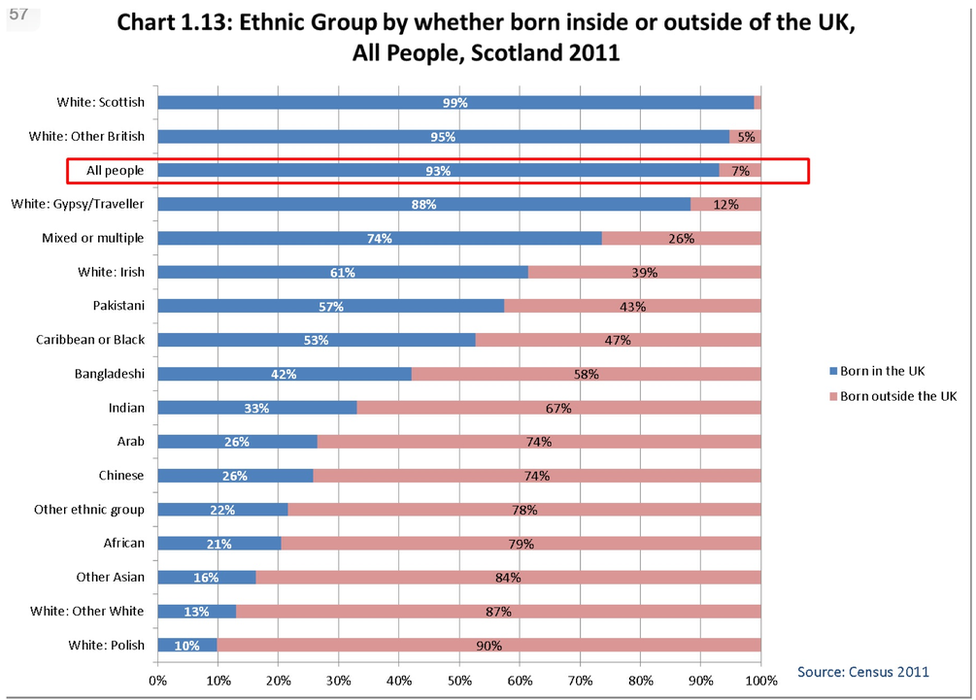
Ethnic group by whether they were born inside or outside of the UK
2. Countries of birth outside of the UK
Seven in every 100 Scots were born outside the UK. In 2001, the largest single group were Irish-born, followed by Germany, Pakistan and the USA. But that changed within 10 years, to a much larger number of Poles born outside the UK, followed by those born in India, Ireland and Germany. Poland wasn't in the top 15 in 2001. Nor was Nigeria, while New Zealand and the Netherlands fell down the table.
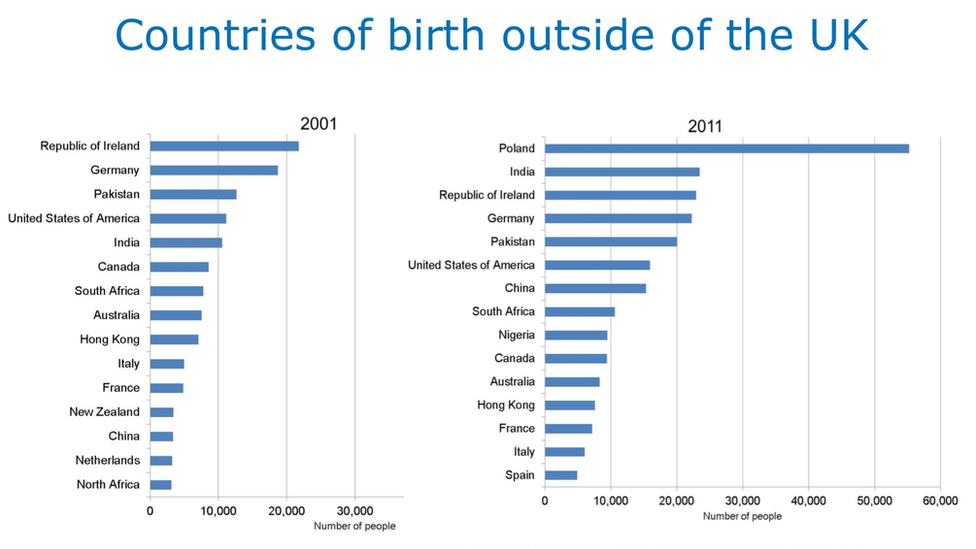
3. European comparisons: proportions of foreign born population
How does immigration compare in Scotland with the rest of Europe? Luxembourg and Cyprus had by the largest share of foreign-born residents in 2011. England had 13%, Scotland had 7%, Northern Ireland had 6% and Wales 5%. While small countries countries can have many immigrants, as well as emigrants, those at the bottom of the immigrant table are some of Europe's poorest countries. It's a lot less attractive to move there for work.
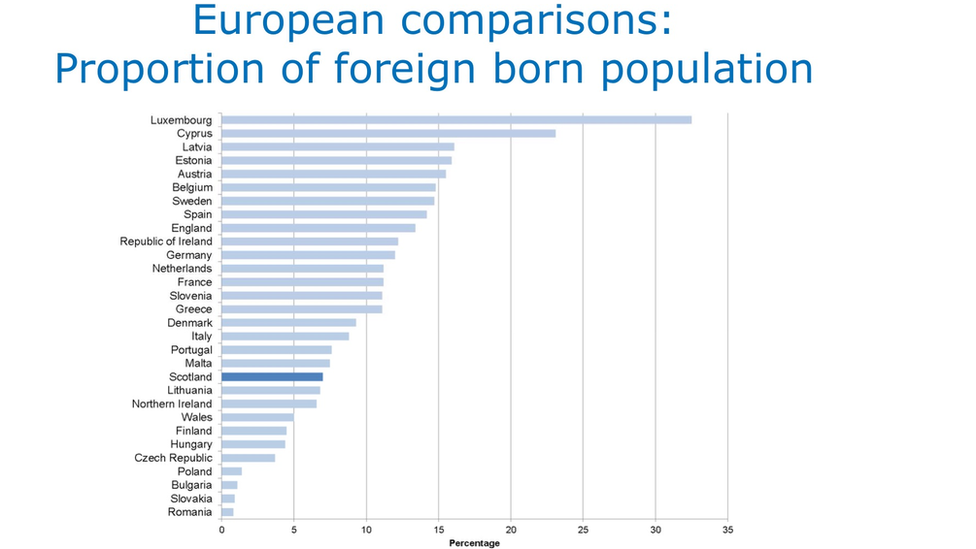
4. Ethnic group by age
Immigration is seen as one way of countering the problems that arise for Scotland (and other European countries) of an ageing population. While a minority of the total population was aged up to 40 in the 2011 census, white Scottish, Irish and other British people were majority 40 and over. The youngest age profile was Polish, with 85% aged up to 40. Scots with African and Arab roots were also much more likely to be younger.
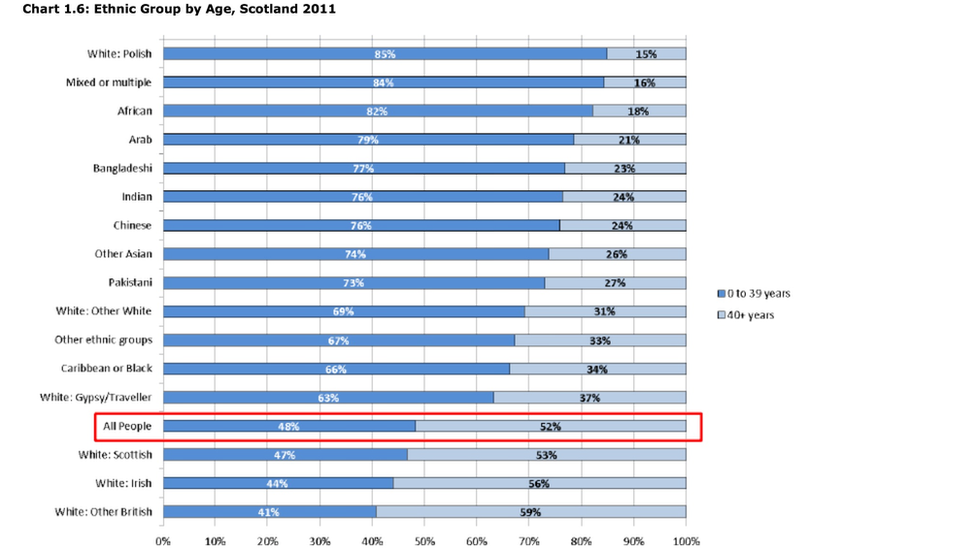
5. Population pyramids
The age spread of all Scots is more weighted towards elderly people than in the Indian and Pakistani communities. And of the working age population, those of Asian origin are more likely to be in the younger age brackets.
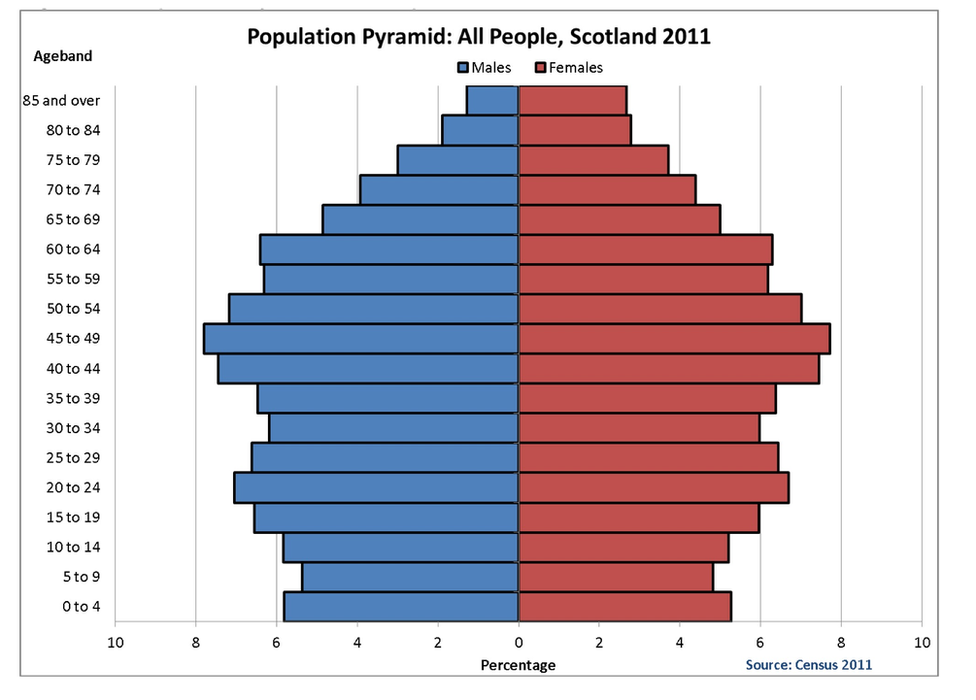
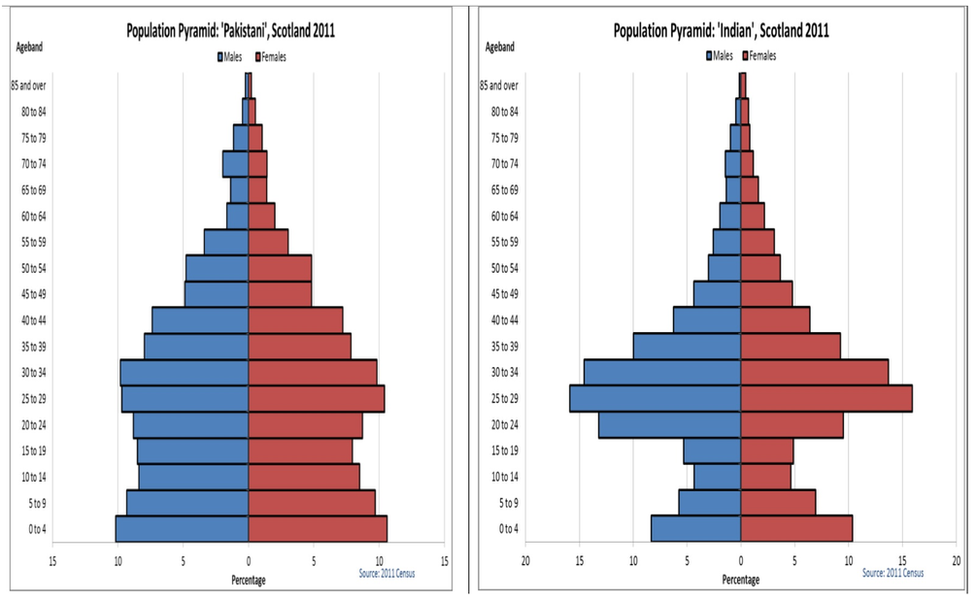
6. Scotland's population by ethnicity, 2001-2011
How much of Scotland's total population is immigrant, and how much did it change in a decade?
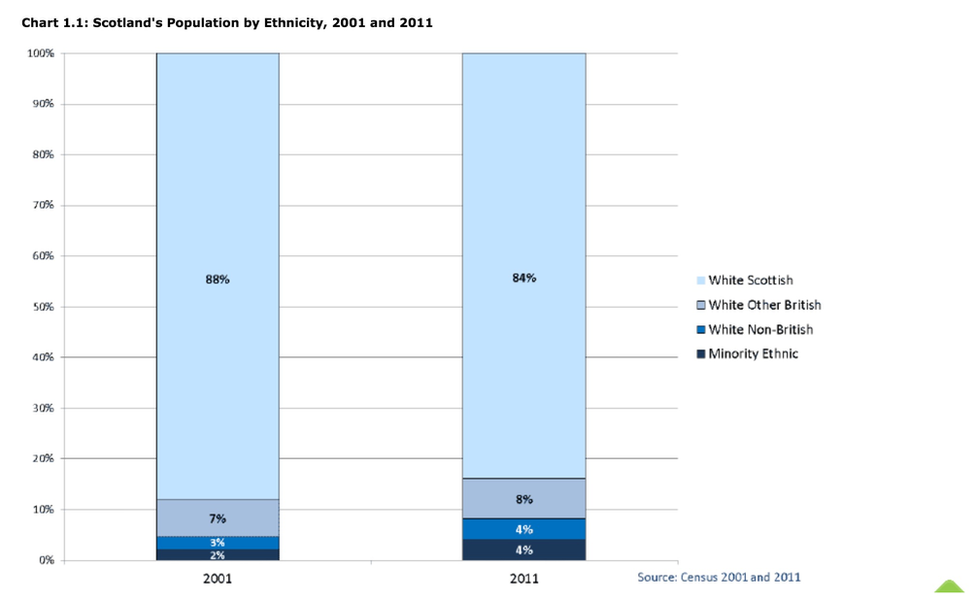
7. Ethnic group by religion
When the 2011 Scottish census form asked people their religion, a large number responded 'no religion'. Broken down by ethnic group, Polish and Irish groups were majority Catholic, and Africans were the next biggest Christian group. Of Pakistani-Scots, 91% said they were Muslim, 41% of Indian-Scots responded Hindu. The least religious group was Chinese, with 69% saying that had no religion.
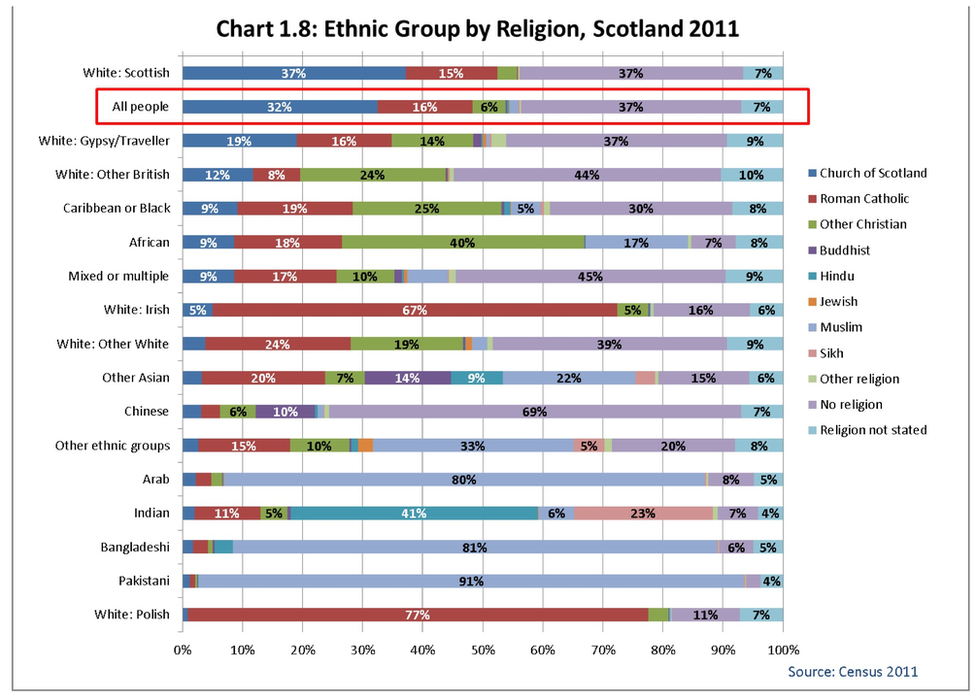
8. Non-Christian religions in Scotland
People with religious affiliation other than Christians were mostly Muslim, up from 43,000 to 77,000 in the 10 years to the most recent census.
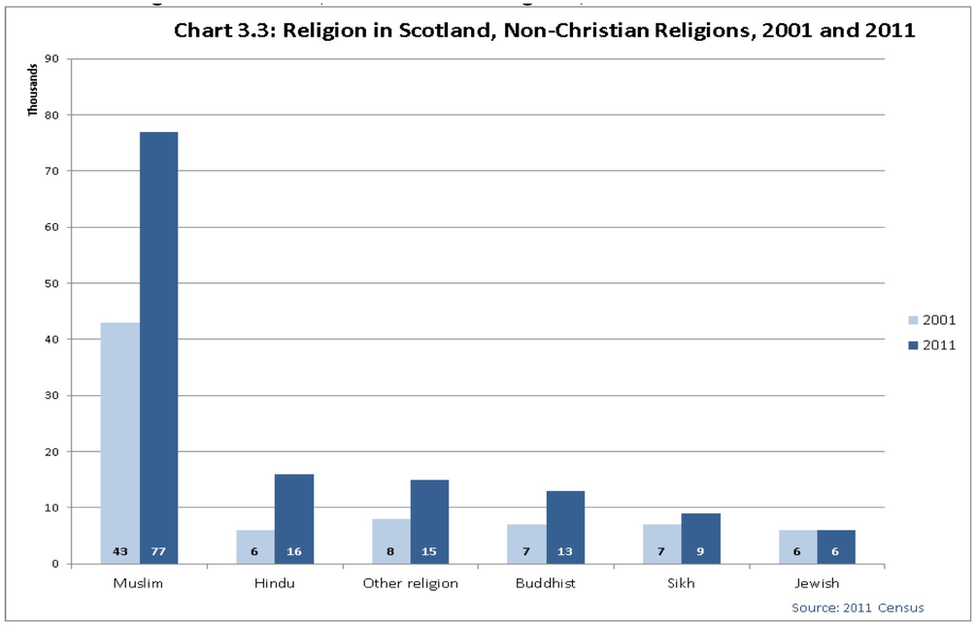
- Published10 March 2015
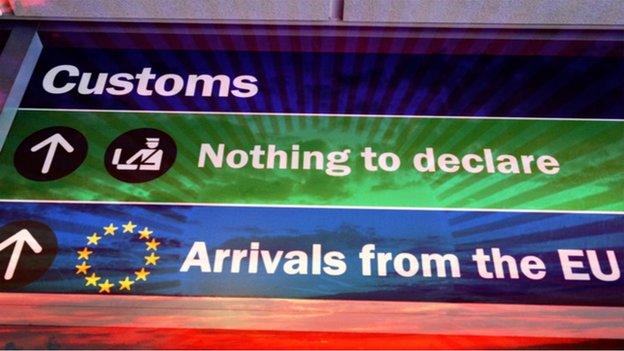
- Published11 March 2015
- Published9 March 2015
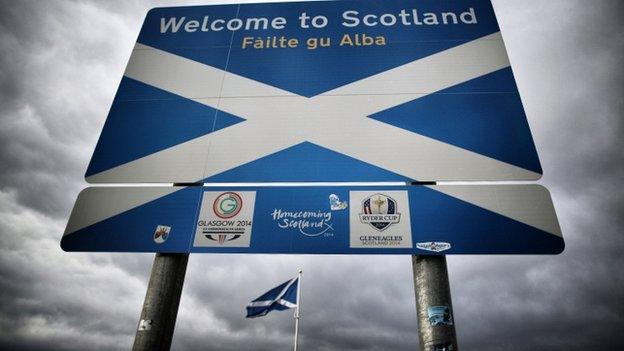
- Published9 March 2015
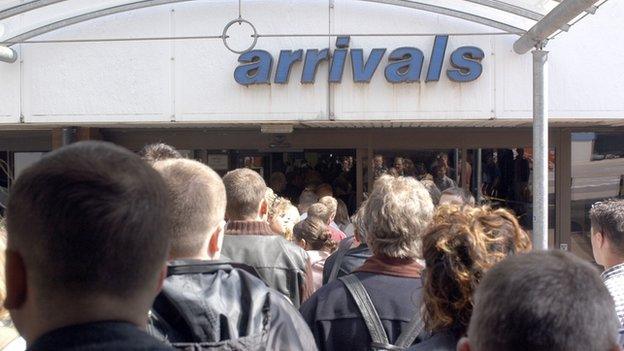
- Published9 March 2015
